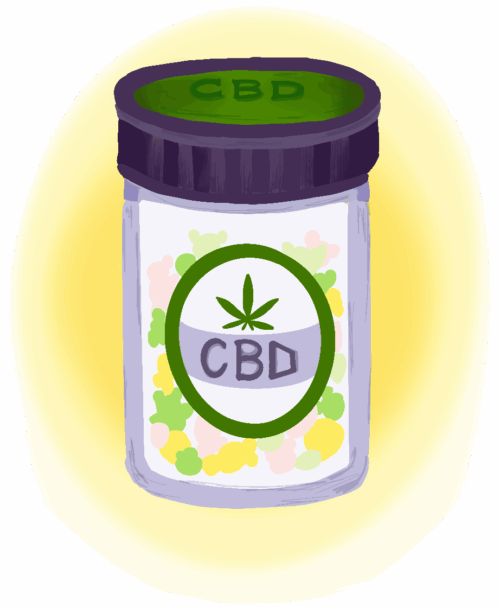In June 2024, the NCAA voted to remove marijuana from its list of banned substances for student-athletes across all divisions. Following the removal of the same ban in the NBA, this rule change was a significant shift for the athlete community, who are no longer subject to season-long suspensions for a positive test. Additionally, this opened the avenue for student-athletes to use CBD products for recovery purposes, an option previously off-limits. CBD offers unique benefits to anyone who is looking to alleviate pain, sleep better, and navigate the chaos of college life.
While not everyone has the same reaction to CBD when it comes to their sleep, several studies suggest a positive relationship between usage and the management of sleep disorders. Experts recommend that student-athletes have anywhere between eight and ten hours of sleep a night to achieve proper recovery; for many, this is unrealistic given their myriad commitments. The use of CBD to combat sleep disorders such as insomnia and sleep apnea, which serve as barriers to proper rest, is an underutilized solution. THC-free CBD gummies are a great way to help reach your WHOOP’s REM goal for the night.
Not only can CBD improve sleep, but it also provides a more homeopathic approach to pain relief. When comparing CBD and Ibuprofen, the way the two drugs interact with different systems within your body is reason enough to pause and consider which one you want to use. CBD regulates pain throughout the body through receptors and neurotransmitter interactions after it is absorbed into the bloodstream; Ibuprofen, on the other hand, works by inhibiting the production of enzymes involved in the inflammation.
While CBD still interacts with other receptors in the liver to slow its breakdown, when it comes to pain management, disrupting enzyme production can have side effects outside the intended pathways in the body. Long-term daily usage of Ibuprofen is responsible for 107,000 hospitalizations and 15,600 deaths in the United States every year. While these situations are extreme, they should be noted when making the best choice for pain management in-season.
Furthermore, there are significantly more ways to use CBD for pain relief in comparison to Ibuprofen. The only readily available way to ingest Ibuprofen is in different pill forms; meanwhile, CBD can be used in gummies, drinks, topicals, or sublinguals. Topical creams are not absorbed into the bloodstream but still provide anti-inflammatory benefits to the applied area; this is especially beneficial for targeting specific injured areas for athletes.
Being in season is one of the most stressful times of year for a student-athlete. Between the academic commitments of being a student at Harvard and the pressure to perform at the highest level, it is easy to feel the crushing weight of stress and anxiety. CBD can help relieve these dynamics, given how it interacts with your body. The absorption of CBD into the bloodstream interacts with the endocannabinoid system, which impacts your mood. Additionally, cannabidiol interacts with serotonin receptors in the brain. This combination makes individuals feel happier and less stressed before a big game.
Now, it would be irresponsible to sing the praises of CBD usage for recovery without mentioning some of the downsides. Primarily, the Food and Drug Administration (FDA) does not have strong oversight of CBD products. The FDA is making efforts to strengthen its regulatory powers, but the existing system cannot effectively oversee the production and sale of CBD products in the same way as prescription drugs. While many products are third-party tested, it is not guaranteed that the product you are taking is tested in the same way as Ibuprofen or Melatonin. That being said, we take risks daily, and researching any product you put into your body will always remain as the best practice.
When it comes to recovery, everybody reacts differently to various treatments; there truly is no one-size-fits-all approach to sleep deprivation, pain management, or stress reduction. You are your body’s best advocate, so if traditional medicine and advice are not working for you, it may be worth it to look into alternatives.
Kate Oliver ’26 (koliver@college.harvard.edu) takes way too much Ibuprofen in season.

